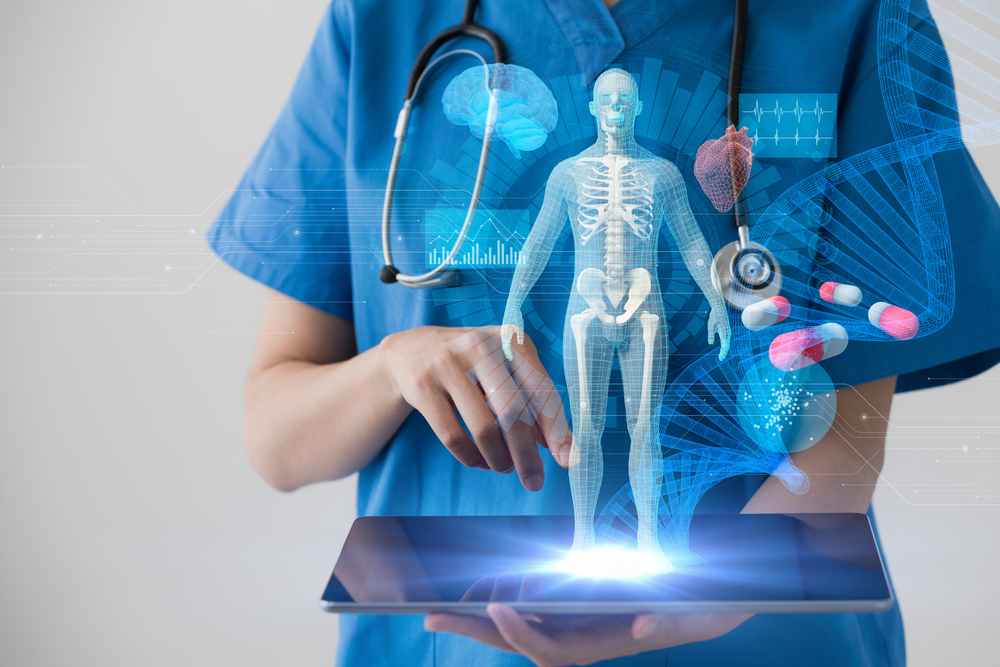A century ago, Calvin Coolidge was president of the United States.
In 1924, his 16-year-old son, Calvin Jr., developed a blister playing tennis without socks at the White House.
It became infected. Five days later, he died.
Before the discovery of antibiotics, there was nothing that the best doctors in the nation could do to save the son of the most powerful man in the world.
Tragedies like this were routine.
Since then, however, advances in medicine and technology have eliminated most of history’s plagues, including polio, smallpox, measles and rickets.
There has been a stunning reduction in infectious diseases. Heart disease and stroke incidence are in decline.
Yet, thanks to artificial intelligence (AI), we are on the cusp of the greatest medical advances in human history.
And the investment opportunities are immense. Here’s why…
The world now creates 2.5 quintillion bytes of data each day.
AI is the only way to effectively process and use all this information.
(Already, more than 35% of companies use some form of AI in their business.)
AI enables computers, robots and other connected devices to mimic the perception, learning, problem-solving and decision making of the human mind.
This allows machines to perform specific tasks with increasing accuracy and without human intervention.
Applications are now used for speech recognition, language processing, virus and spam prevention, autopilot technology, image recognition, real-time recommendations, even automated stock trading.
Anything that can be achieved by human intelligence can be sped up and enhanced by AI.
People will have better outcomes across virtually every domain of human activity, including comprehension, creativity, conflict resolution, health and longevity.
Very soon, every child will have an AI tutor. Every worker will have an AI mentor. Every scientist and engineer will have an AI researcher. Every doctor will have an AI collaborator. Every businessperson will have an AI consultant.
In short, everyone will have an infinitely patient, infinitely knowledgeable, infinitely helpful partner – that never sleeps, gets sick or takes vacations – available 24/7.
This means productivity – doing more with less – will accelerate dramatically, driving economic growth, creating new ideas, new jobs and whole new industries.
AI will augment human intelligence to solve problems better and faster than ever before.
One of the areas that will be the most dramatically transformed is healthcare.
It’s not just that a doctor at a practice in rural America will have the same access to diagnostic information and analytics as a physician at a top university medical center.
In biomedical research, AI will dramatically improve outcomes.
It currently takes over 10 years and more than $1 billion to get a new drug from its inception to FDA approval.
(And you wondered why drug prices are so high?)
But AI will dramatically reduce the cost and length of time.
It will allow us to achieve higher-quality data from fewer clinical trials.
Rather than requiring tens of thousands of participants as many trials do today, it will use a more focused approach, helping us create safe, new therapies and get them into medical practice sooner, saving millions of lives.
In a Wall Street Journal interview this month, Dr. Lloyd Minor, dean of the Stanford University School of Medicine, said…
The drug discovery process is on the cusp of being transformed in ways that will dramatically improve the number of therapies that get to patients… we’ll see a lot of new medicines coming out – and medicines more specific to a disease and an individual rather than medicines that are generic in terms of treatment of everyone who has this disorder.
Dr. Minor concludes that AI is “a transformative moment in human history,” creating the most radical and “most positive transformation in health since the introduction of antibiotics.”
Early investors in AI-powered drug discovery stand to make a great deal.
Calvin Coolidge – who famously said that “the business of America is business” – would be very pleased indeed.
